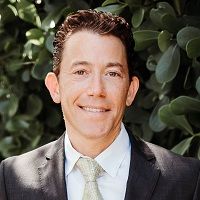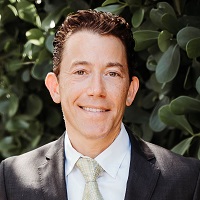Two Keys to a Happy Retirement: Health and Wealth Plans
It’s nearly impossible to have a successful retirement without taking care of both your physical health and your financial health. Here are five tips to help.


Profit and prosper with the best of Kiplinger's advice on investing, taxes, retirement, personal finance and much more. Delivered daily. Enter your email in the box and click Sign Me Up.
You are now subscribed
Your newsletter sign-up was successful
Want to add more newsletters?

Delivered daily
Kiplinger Today
Profit and prosper with the best of Kiplinger's advice on investing, taxes, retirement, personal finance and much more delivered daily. Smart money moves start here.

Sent five days a week
Kiplinger A Step Ahead
Get practical help to make better financial decisions in your everyday life, from spending to savings on top deals.

Delivered daily
Kiplinger Closing Bell
Get today's biggest financial and investing headlines delivered to your inbox every day the U.S. stock market is open.

Sent twice a week
Kiplinger Adviser Intel
Financial pros across the country share best practices and fresh tactics to preserve and grow your wealth.

Delivered weekly
Kiplinger Tax Tips
Trim your federal and state tax bills with practical tax-planning and tax-cutting strategies.

Sent twice a week
Kiplinger Retirement Tips
Your twice-a-week guide to planning and enjoying a financially secure and richly rewarding retirement

Sent bimonthly.
Kiplinger Adviser Angle
Insights for advisers, wealth managers and other financial professionals.

Sent twice a week
Kiplinger Investing Weekly
Your twice-a-week roundup of promising stocks, funds, companies and industries you should consider, ones you should avoid, and why.

Sent weekly for six weeks
Kiplinger Invest for Retirement
Your step-by-step six-part series on how to invest for retirement, from devising a successful strategy to exactly which investments to choose.
My mom and stepdad worked hard over their lifetime to accumulate enough assets for a comfortable retirement. They wanted to go anywhere and do anything, whenever and wherever they wanted.
Flash-forward to today, and a significant amount of their time and money in retirement is being spent on their health care needs. While they both had some pre-existing conditions, many of their current health problems can be traced back to a lack of movement in their 60s and 70s. Their lack of strength and stamina, combined with a sedentary lifestyle, eventually led to a serious health condition for my stepdad, forcing an early retirement and the unexpected sale of his business. Significant life changes like these are often financially devastating. Fortunately, their finances were stable enough to cope with those surprises, but their current state of health continues to prevent them from enjoying the retirement of their dreams.
On the other hand, my dad and stepmom are physically healthy and mentally sharp as a tack. By choice, they are still working into their mid-70s with retirement on the near horizon. While they have the means to retire, continuing to work has only enhanced their financial position as well as their mental and physical health. Staying holistically healthy has allowed them to do the things they enjoy most, traveling and spending as much time as possible with their grandchildren.
From just $107.88 $24.99 for Kiplinger Personal Finance
Become a smarter, better informed investor. Subscribe from just $107.88 $24.99, plus get up to 4 Special Issues

Sign up for Kiplinger’s Free Newsletters
Profit and prosper with the best of expert advice on investing, taxes, retirement, personal finance and more - straight to your e-mail.
Profit and prosper with the best of expert advice - straight to your e-mail.
This “tale of two retirements” highlights the critical, symbiotic relationship between health and wealth. A good financial plan needs to address the whole self to help ensure you are fully ready to transition into a long, healthy retirement.
How health and wealth work together
Health care continues to be one of the top expenses for retirees. According to the Fidelity Retiree Health Care Cost Estimate, a 65-year-old couple retiring today can expect to pay around $315,000 on health care, which doesn’t even include the additional cost of medications, dental care and long-term care services — the most expensive element of health care for retirees.
According to the Administration for Community Living, 70% of retirees will need long-term care at some point, which can be incredibly expensive. A Genworth study shows that the average semi-private nursing home room today costs $8,390 per month, and in-home aid costs $5,462 per month. In 20 years, those same monthly costs will increase to about $23,133 for a semi-private nursing home room and $15,059 for in-home health care (assuming a 5% medical inflation growth rate).
But health issues can cost more than just dollars. Most of my mom and stepdad’s time is spent visiting the doctor’s office and preparing for or recovering from procedures, which robs them of the chance to enjoy quality time with friends, family and, most important, their grandchildren. It’s even impacted their own relationship, as my mom has become a full-time caretaker rather than just a loving wife.
A lack of relational connection can lead to loneliness and depression: One in three retirees develop depression during their golden years, and coping with ongoing health challenges is a common cause.
It may be important, but your health certainly does not trump your finances. You could be the healthiest person on the planet — a devoted yogi who eats a plant-based diet and engages in regular activity — but if you’ve failed to create a healthy nest egg protected from taxes, future
Health care costs and other retirement risks, you may struggle to afford the quality of life you want.
Financial security and good health both matter! You can’t enjoy one without the other. True success comes from finding a balance between the two.
Health and wealth planning tips
Very few financial advisers take the time to address the whole self when planning for retirement, but as you can see from my parents’ “tale of two retirements,” it’s an essential part of the process. It may sound intimidating, but it doesn’t have to be overly complicated. I have five simple steps to help you get started.
Build a wealth plan. This is essential for financial success in retirement. A wealth plan goes beyond simply saving money in a 401(k) or Roth IRA. It addresses everything from tax strategy and Social Security optimization to investment strategy and income planning. Your plan should focus on protecting your assets as you approach retirement and offer safeguards like stress tests and distribution strategies to ensure you have the financial means to support retirement, no matter how long you live.
Plan to live a long life. Your customized wealth plan should be designed to sustain your lifestyle, even if you were to live well into your 90s. If you end up living a shorter life, your loved ones can benefit from the wealth you created but didn’t use. On the other hand, if you have enough retirement income to last only until age 75 and you end up living two more decades, you’ll experience years of financial hardship, and your loved ones will likely have to shoulder the responsibility of taking care of you. Planning for retirement with longevity in mind helps ensure your needs will always be met.
Prioritize your holistic health now. If my parents could go back in time, I’m sure they would do things differently when it comes to their health. Learn from their mistakes and make lifestyle adjustments today that can help you maintain good health throughout your lifetime. Even small changes can add up to have a big impact.
While some people might be predisposed to certain complications, research shows that your lifestyle can help activate or avoid those health complications. Pay close attention to your nutrition and stay physically active, even as you age. Simple, daily movement can be life-changing: Walking just 6,000 steps a day has been proven to dramatically decrease your risk of cardiovascular disease, according to a study published in the journal Circulation. Habits like self-reflection and practicing gratitude can help reduce your toxic stress load, according to the CDC and Tamen Jadad-Garcia and Dr. Alex Jadad, authors of Healthy No Matter What: How Humans Are Hardwired to Adapt. If left unchecked, toxic stress can cause serious damage to your physical and mental health.
I may not be a health specialist, but I am married to one, and I’ve seen the power of a healthy lifestyle firsthand. If you want to pursue the activities you love and make memories with your grandchildren and other loved ones in retirement, make sure your lifestyle is in alignment with that goal.
Consider long-term care insurance. Even if you take good care of your mental and physical health, it’s important to plan ahead for any potential medical needs. Paying for health care out-of-pocket in retirement can be expensive, and Medicare will not cover all of your needs. A traditional or hybrid long-term care insurance policy can help supplement your regular insurance or Medicare coverage, protecting your retirement assets from the hundreds of thousands of dollars a long-term care claim can cost.
Life insurance can also act as a type of long-term care policy, by allowing you to access your death benefit to pay for long-term care needs. I recommend meeting with a financial professional who specializes in long-term care planning to find the right level of protection for you.
Create structure in retirement. Transitioning into retirement can be difficult. Your daily work schedule is gone, and it can be challenging to find a new sense of purpose. Not to mention, it can be hard to maintain social connection, and loneliness has been found to increase your risk of heart problems, dementia, stroke, depression and anxiety, according to the U.S. Surgeon General’s Advisory on the Healing Effects of Social Connection and Community.
When your career ends, it’s up to you to maintain structure and purpose in your life. Find a new passion project, like woodworking, crafting or hiking. Get connected with a community group such as a book club, sewing circle or religious group. Consider volunteering at a local nonprofit. I once worked with a retiree whose child owned a nonprofit, so they joined the board of directors as a way to stay connected to family and make an impact on the community.
Some people opt for a partial retirement, working a few hours a week to stay busy. This is also financially beneficial, as the income you earn may meet your needs and allow you to hold off on starting Social Security benefits or withdrawing from your retirement accounts. However you want to spend your time, it doesn’t matter, so long as you find a renewed sense of purpose for your life.
A truly holistic financial plan should address the entirety of your health — financially, physically, mentally and relationally. Longevity shouldn’t turn into a financial burden, but rather something to be celebrated knowing you worked hard to create a retirement filled with healthy habits and the means to support it. The success of your retirement depends on finding a balance between health and wealth so you can live out the life you’ve earned!
Related Content
- Saving for Retirement Isn’t Enough: You Need a Wealth Plan
- Three Ways Women Can Prepare for Longevity in Retirement
- Will You Have a Happy Retirement (Even With Enough Money)?
- Finances Aside, What Does a Happy Retirement Look Like?
- To Afford Retirement, Take Inspiration from ‘The Golden Girls’
Profit and prosper with the best of Kiplinger's advice on investing, taxes, retirement, personal finance and much more. Delivered daily. Enter your email in the box and click Sign Me Up.

Bradley Rosen is the owner and president of Longevity Financial, an independent financial professional with over 24 years of financial planning experience. Bradley provides each client with a customized Design for Life By Longevity FinancialⓇ plan that encompasses each part of their financial picture, including investments, insurance, taxes and legacy planning. He is passionate about creating longevity with one’s finances and prioritizing holistic health, both physically and financially. His unique approach to retirement planning is the result of watching both his grandmothers outlive their retirement income. For his dedication to educating and empowering women, he was awarded the Thelma Gibson Award in 2015. He has been featured in Forbes and on the local CBS, NBC and FOX TV news affiliates in his new hometown of Atlanta.
-
 Dow Leads in Mixed Session on Amgen Earnings: Stock Market Today
Dow Leads in Mixed Session on Amgen Earnings: Stock Market TodayThe rest of Wall Street struggled as Advanced Micro Devices earnings caused a chip-stock sell-off.
-
 How to Watch the 2026 Winter Olympics Without Overpaying
How to Watch the 2026 Winter Olympics Without OverpayingHere’s how to stream the 2026 Winter Olympics live, including low-cost viewing options, Peacock access and ways to catch your favorite athletes and events from anywhere.
-
 Here’s How to Stream the Super Bowl for Less
Here’s How to Stream the Super Bowl for LessWe'll show you the least expensive ways to stream football's biggest event.
-
 How to Add a Pet Trust to Your Estate Plan: Don't Leave Your Best Friend to Chance
How to Add a Pet Trust to Your Estate Plan: Don't Leave Your Best Friend to ChanceAdding a pet trust to your estate plan can ensure your pets are properly looked after when you're no longer able to care for them. This is how to go about it.
-
 Want to Avoid Leaving Chaos in Your Wake? Don't Leave Behind an Outdated Estate Plan
Want to Avoid Leaving Chaos in Your Wake? Don't Leave Behind an Outdated Estate PlanAn outdated or incomplete estate plan could cause confusion for those handling your affairs at a difficult time. This guide highlights what to update and when.
-
 I'm a Financial Adviser: This Is Why I Became an Advocate for Fee-Only Financial Advice
I'm a Financial Adviser: This Is Why I Became an Advocate for Fee-Only Financial AdviceCan financial advisers who earn commissions on product sales give clients the best advice? For one professional, changing track was the clear choice.
-
 I Met With 100-Plus Advisers to Develop This Road Map for Adopting AI
I Met With 100-Plus Advisers to Develop This Road Map for Adopting AIFor financial advisers eager to embrace AI but unsure where to start, this road map will help you integrate the right tools and safeguards into your work.
-
 The Referral Revolution: How to Grow Your Business With Trust
The Referral Revolution: How to Grow Your Business With TrustYou can attract ideal clients by focusing on value and leveraging your current relationships to create a referral-based practice.
-
 This Is How You Can Land a Job You'll Love
This Is How You Can Land a Job You'll Love"Work How You Are Wired" leads job seekers on a journey of self-discovery that could help them snag the job of their dreams.
-
 65 or Older? Cut Your Tax Bill Before the Clock Runs Out
65 or Older? Cut Your Tax Bill Before the Clock Runs OutThanks to the OBBBA, you may be able to trim your tax bill by as much as $14,000. But you'll need to act soon, as not all of the provisions are permanent.
-
 The Key to a Successful Transition When Selling Your Business: Start the Process Sooner Than You Think You Need To
The Key to a Successful Transition When Selling Your Business: Start the Process Sooner Than You Think You Need ToWay before selling your business, you can align tax strategy, estate planning, family priorities and investment decisions to create flexibility.